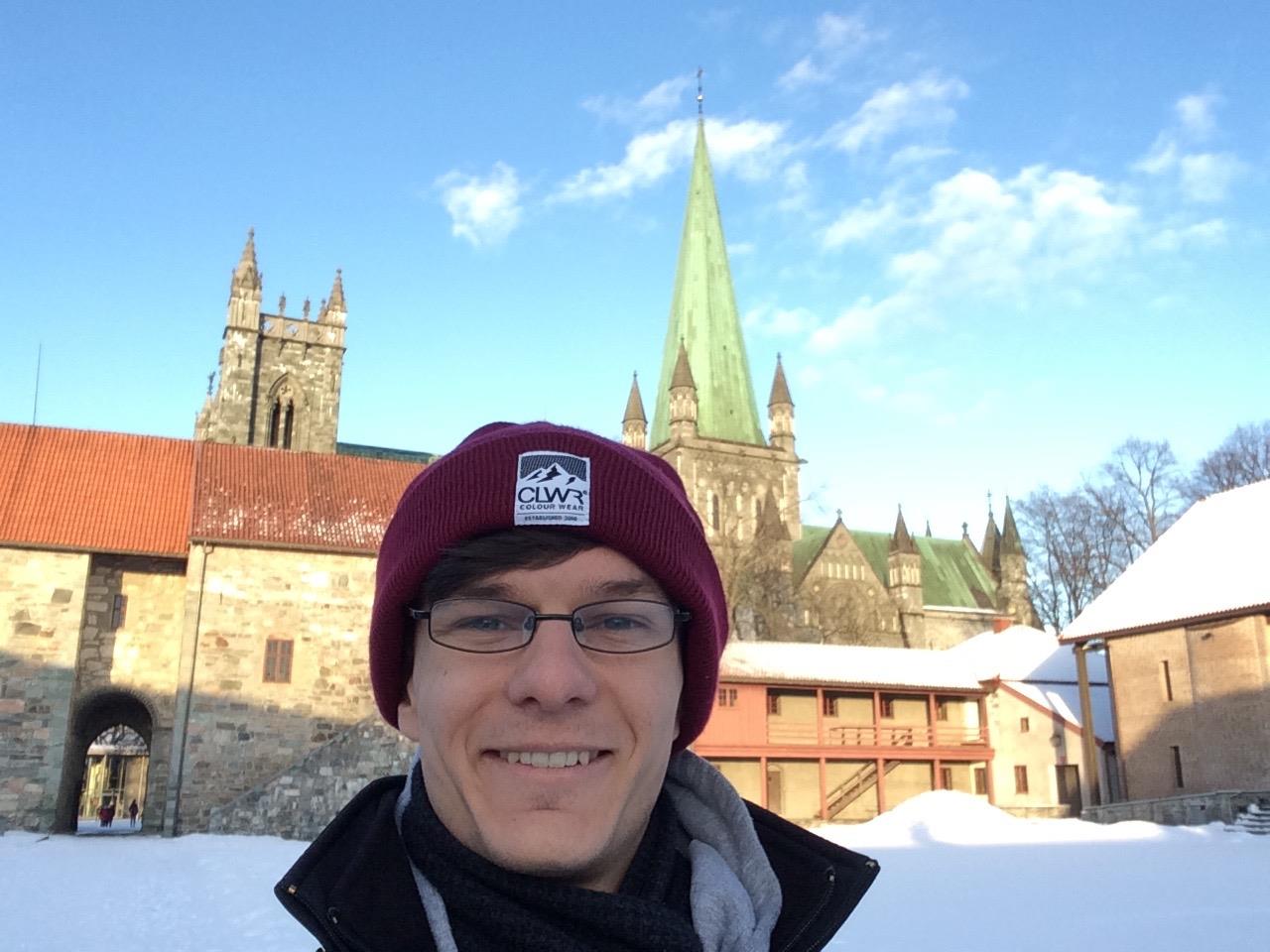Hard work and dedication are two essential traits for students pursuing a career in research. Many students at Northeastern embody those traits, but perhaps none more than Isaac Kresse. This year, Kresse is one of around 300 nationwide 2018 recipients of the prestigious Barry M. Goldwater Scholarship.
Kresse, a fourth-year student, is pursuing a double major in chemistry and computer engineering. He is one of four Northeastern students to receive the Goldwater scholarship this year. The other recipients are Minhal Ahmed, Kritika Singh, and Elizabeth Wig, all of whom are part of the College of Engineering. All four Goldwater Scholars were recognized at Northeastern’s Academic Honors Convocation on April 23, 2018.
The scholarship honors students who have the potential, in Kresse’s words, “to be successful in a career in research.” The scholarship provides students with funds that can be applied to tuition, textbooks, and room and board. Kresse says the scholarship is an important recognition of all the work that he’s done up to this point in his career.
“It feels very gratifying to receive this award after many years of hard work,” he said.
Kresse’s career in research started more than five years ago at The Gatton Academy of Mathematics and Science in Bowling Green, Kentucky. The Gatton Academy is a two-year school for high school juniors and seniors located on the campus of Western Kentucky University. At Gatton, Kresse gained his first research experience in a physical chemistry lab and took many college-level chemistry courses.
When it came time to look at colleges, Kresse says that Northeastern’s attitude of “hit-the-ground-running” appealed to him. In addition to completing the chemistry major that he had started at The Gatton Academy, Kresse declared a second major in computer engineering at Northeastern to expand his problem-solving toolkit.
Since his second semester, Kresse has worked in Professor John Engen‘s protein dynamics lab. Kresse’s particular focus is on improving the processing of data on how proteins move and function.
“If we can process the data faster, we can focus more on what it means rather than spending time getting all the numbers right,” Kresse said.
Kresse’s Northeastern education so far has had a strong global focus. For his first co-op, he worked at SINTEF, an independent research organization in Trondheim, Norway. A year later, he did his second co-op at the National University of Singapore as an undergraduate research assistant. Kresse has also completed a Northeastern Dialogue of Civilizations, where he explored pharmaceutical companies in Ireland, England, and Switzerland.
Kresse says this type of global exploration is critical for expanding his skill set as a researcher.
“The more places you see, the wider your perspective gets,” he said. “When you see new ways of doing things, you start to realize your way isn’t the only way.”
He hopes to apply for a Fulbright scholarship after graduation to work for the Max Planck Institute of Biochemistry in Germany. Right now, he’s in the midst of his third co-op in Steven McCarroll’s human genomics lab at Harvard Medical School, where he is working to improve a technique developed by the lab called Drop-seq.
Drop-seq involves the capture of individual cells inside single droplets with barcoded beads. By using these barcoded beads to trace back mRNA transcripts from these cells, researchers can better understand how particular genes are expressed in our DNA. This technique has important applications in the study of genetic diseases, like Alzheimer’s and Amyotrophic Lateral Sclerosis (ALS).
Kresse is designing a microfluidic chip to improve the percentage of droplets used that actually contain barcoded beads. This allows the lab to track a greater percentage of cells. After his co-op is over, he’ll continue to work part-time with McCarroll while also starting his capstone project in Engen’s lab.
Kresse credits his strong network of supporters as important players in his progress as a researcher. That includes Professor Engen, who has been Kresse’s mentor since his freshman year, as well as Derick Strode, assistant director of academic services at the Gatton Academy whom Kresse calls a “great mentor and wonderful friend.”
Kresse says that the research questions he is most passionate about right now are about “how we work and how we got here.”
“I want to be a part of asking those questions and figuring out some of the answers,” he said.

